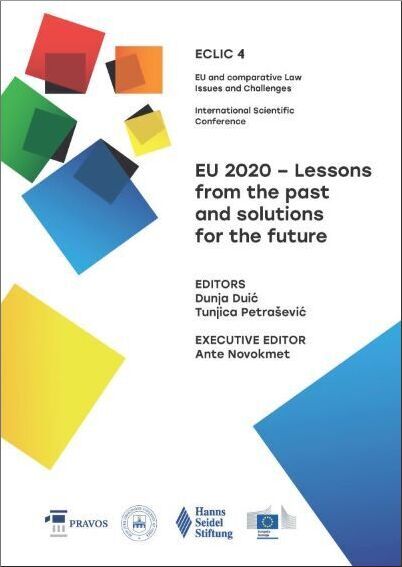THE MISSING LINK - ACCESS TO JUSTICE IN ENVIRONMENTAL MATTERS
DOI:
https://doi.org/10.25234/eclic/11898Abstract
It is widely recognized that environmental protection, social benefits and economic issues must go hand in hand. In the European Union, Environment Action Programmes (EAPs) have guided the development of EU environmental policy since the 1970s, and they have strengthened the achievement of environmental goals and the integration of environmental interests in other EU policy areas. Given their joint responsibility, EU environmental policy provides added value both for the EU and its Member States. Until the end of 2020 the 7th EAP is the agreed framework of environmental policy-making, and discussions are underway on developing the 8th EAP. Between 2014 and 2020, some progress has been made towards achieving the goals of the programme. For example, the 7th EAP provided more predictability of environmental policy and facilitated Member States’ policy coordination. Nevertheless, the evaluation of the 7th EAP proves that EU legislation is going in the right direction, but the impacts cannot be seen with actions on the ground. The environmental acquis of the EU continues to grow, but the efforts are insufficient to implement it. Broad difficulties with the coherent implementation of environmental policy can be perceived at national level, too. That is the main reason why different stakeholders (particularly environmental NGOs) play a decisive role in environmental policy-making, implementation and enforcement. The evidence base indicates that the involvement of the members of the public can reduce the enforcement deficit of EU environmental law, but more needs to be done at all levels. In 1998, the EU and all the Member States signed the Aarhus Convention on environmental rights, including access to justice in environmental matters. On 17 March 2017, the Compliance Committee (ACCC) found the EU to be in violation of the Convention by failing to provide members of the public with access to the EU courts. On the other side, the Commission adopted a proposal on access to justice in environmental matters in 2003, but the proposal did not gather sufficient support from the national governments. The Commission therefore withdrew the proposal in 2014. Nonetheless, the Commission has delayed remedying this issue, even contrary to calls by international bodies and its fellow institutions. In October 2019, the European Council called upon the Commission to present at the latest by early 2020 an ambitious and focused proposal for the 8th EAP (2021-2030), and underlined that the new programme must address environmental governance, such as public participation and access to justice. Hopefully, the missing link of EU environmental legislation will be resolved by the EU institutions as soon as possible.
Downloads
Published
How to Cite
Issue
Section
License
Copyright (c) 2020 Attila Pánovics

This work is licensed under a Creative Commons Attribution-NonCommercial 4.0 International License.
Authors retain the copyright on the papers published in the Journal, but grant the right of first publication to the Journal. Papers accepted for publication or already published in ECLIC of the Faculty of Law in Osijek may be published by the author(s) in other publications only with proper notice of its previous publication in ECLIC.


